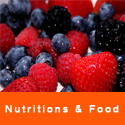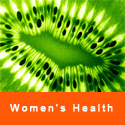Menopause
Overview & Facts: Menopause is the time in a woman’s life when her ovaries stop releasing eggs, therefore she stops menstruating (having monthly period). With the start of menopause, female hormones (estrogen and progesterone) levels drop significantly in the body and this decreased hormone level is associated with some symptoms. Menopause is a natural process in all women, and the average age is 51.
Before menopause start, women enter pre-menopause, which is the period of time several years prior to menopause. It usually starts when a woman is in her 40s. In pre-menopause, the ovaries gradually start producing lower levels of female hormones. Perimenopause lasts on average 4 years, but it can range anywhere from a few months to 10 years.
Symptoms: Common symptoms of pre-menopause include:
- Hot flashes
- Night sweats
- Weight gain
- Sleep disturbances
- Pain
- Mood changes
- Bleeding is unusually heavy or unusually light, and may become irregular.
Hot flashes: Sensation of heat, red flushed face, sweating. They occur when blood vessels near the skin’s surface open wider to allow heat to escape. The severity and duration of hot flashes is different for different women. If hot flashes become a problem, their severity can be reduced by avoiding stress, caffeine, spicy foods, tight clothing, heat, and cigarette smoke. Staying cool, breathing slowly, exercising daily, and having cool pillows and blankets at night can help.
Diagnosis: Menopause is formally defined as when a woman has not had a period for 12 months. There are some kits that claim to detect when a woman is entering menopause by measuring hormone levels. However, because hormone levels tend to fluctuate greatly in women, these tests are not reliable. The only way to diagnose perimenopause is by observing several of the symptoms, and the only way to diagnose menopause itself is to observe lack of menstruation for 12 months.
Living and Managing: Good nutrition can prevent other problems related with aging during and after menopause.
- Get enough calcium
- 2-4 servings of dairy products a day
- Dairy, fish, broccoli, enriched juices, cereal, supplements
- 1200 milligrams per day
- Increase iron intake
- 3 servings of iron rich foods a day
- lean red meat, poultry, fish, eggs, spinach, nuts
- 8 milligrams per day
- Eat fiber
- whole grain bread, cereal, pasta, rice, fresh fruits
- 20 grams per day
- Drink plenty of water
- 8 glasses of water a day help you stay hydrated
- Maintain healthy weight
- lose weight if you are overweight by reducing portion sizes and eating healthier foods
- don’t skip meals
- Reduce fat intake
- Fat should be less than 30% of total daily calories
- Saturated fat should be less than 10% (Saturated fat can lead to high cholesterol or heart disease). It is found in fatty meat, whole milk, ice cream, and cheese
- limit trans fat intake (raises cholesterol, increases risk of heart disease)
- Use salt in moderation
- Too much sodium can lead to high blood pressure.
Health Risk Associated with Weight Gain from Menopause
Weight Gain: Menopause and reduction in hormones level can result in weight gain. This can be unhealthy as weight gain can lead to high cholesterol and blood pressure.
Breast Cancer: the risk of breast cancer increases with weight gain and female hormone decrease. Breast cancer risk increases by 20% for women who gain more than 20 pounds after menopause.
How to Avoid the Negative Effects of Menopause
Exercise Regularly: Cardiovascular and strength training almost every day can greatly help. Daily activities such as taking the stairs, walking, gardening, and stretching are good ways to be active.
Watch your Diet: Avoid processed foods and eat more whole, natural foods such as whole grains, fruits, vegetables, healthy fats (olive oil, walnuts, almonds, avocado, fish).
Watch how much you eat: Women above the age of 45 should try to eat 200 fewer calories than younger women. Instead of skipping meals (which can be even worse than not eating), eat smaller portions along with small healthy snacks throughout the day.
source: WebMD http://www.webmd.com/menopause/default.htm







